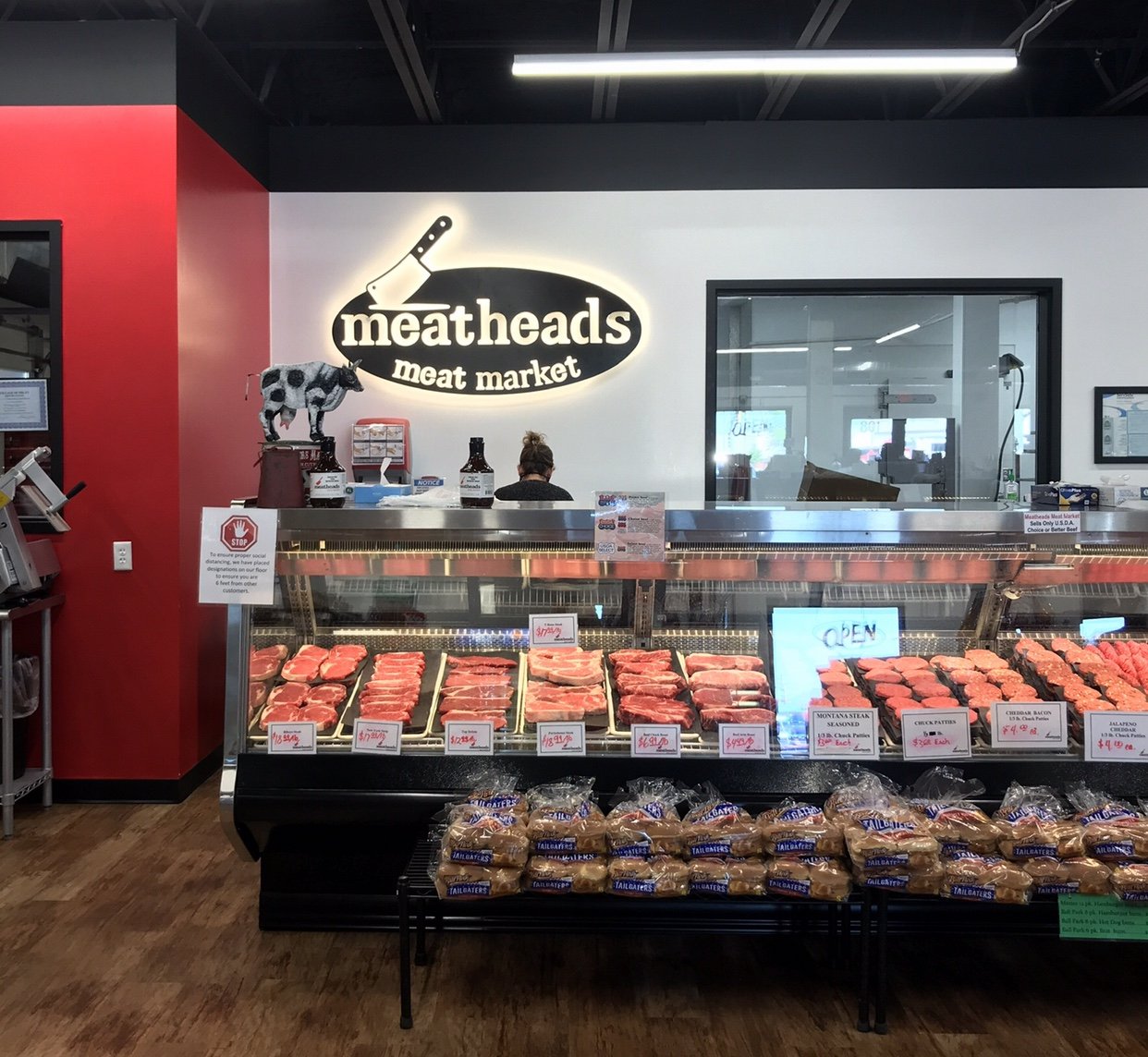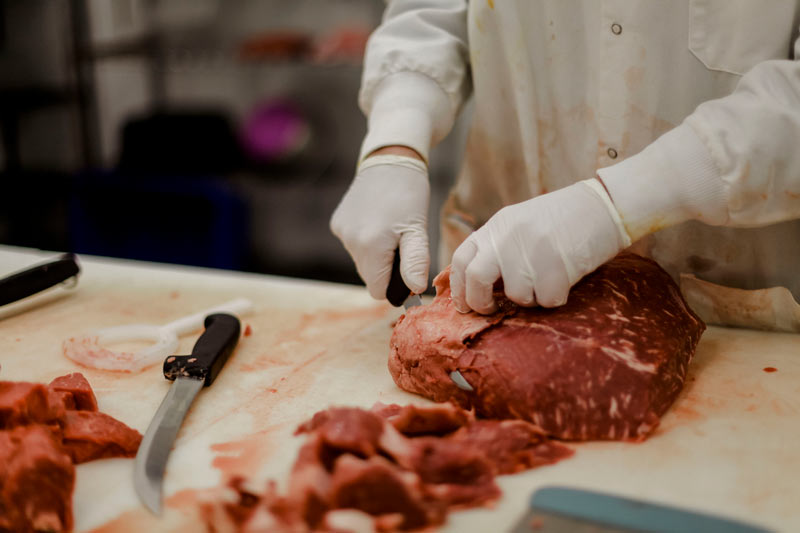Why Buying at a Local Meat Market Guarantees Fresh, High-Quality Cuts
Purchasing at a neighborhood meat market offers distinct advantages that frequently go unnoticed by consumers accustomed to larger retail chains. The implications of choosing local extend beyond immediate advantages, motivating a more detailed exam of what this selection genuinely indicates for both consumers and the regional economy.
Benefits of Neighborhood Sourcing
In the world of food purchase, the benefits of local sourcing stand apart prominently. By acquiring meat from neighborhood markets, customers acquire direct accessibility to items that are commonly fresher and a lot more tasty than those found in bigger, industrial supermarkets. Local sourcing lowers the moment and distance food takes a trip from ranch to table, which not only boosts preference but also maintains dietary value.

Moreover, regional sourcing commonly provides transparency relating to the beginnings of the meat. Customers can ask about the farming methods made use of, animal welfare requirements, and whether the meat is grass-fed or natural. This details encourages shoppers to make informed decisions aligned with their values.
Quality Assurance Standards
Local meat markets frequently abide by strenuous top quality control standards that ensure the products supplied fulfill high security and freshness benchmarks. These standards typically incorporate numerous phases of the meat production process, from sourcing to taking care of and storage space.
First, regional markets frequently establish rigorous vendor criteria, ensuring that just reputable ranches and producers are made use of - bagley meat market edwardsville il. This minimizes the possibility of contamination and promotes greater animal well-being requirements. In addition, lots of local meat markets implement routine evaluations to validate that the meat is processed under hygienic conditions, further decreasing health and wellness threats
Temperature control is an additional important facet of quality control. Neighborhood meat markets frequently keep an eye on refrigeration systems to preserve optimal storage temperatures, making sure that meat continues to be fresh and risk-free for consumption. Furthermore, the implementation of traceability systems allows markets to track the beginning of their products, supplying openness and responsibility.
Last but not least, staff at regional meat markets are often trained to acknowledge indicators of spoilage and comprehend appropriate handling strategies. This commitment to quality assurance not only boosts the total standard of the meat but likewise promotes customer trust fund, making local meat markets a reputable resource for high-quality cuts.
Supporting Local Farmers
Supporting regional farmers is necessary for cultivating a lasting food system and boosting area resilience. They directly contribute to the livelihoods of farmers in their region when consumers choose to go shopping at neighborhood meat markets. This not only supports the local economy but also strengthens the farming field, making certain that it continues to be sensible and vivid.


In addition, supporting local farmers promotes a feeling of area and connection between manufacturers and consumers. It encourages transparency in food sourcing and imparts trust fund, as customers can develop connections with the individuals that increase their food. This straight link inevitably leads to a much more engaged and notified public, which is vital for supporting for lasting farming techniques in the future.
Lasting Practices
Lasting techniques in meat markets play an essential function in promoting environmental stewardship and guaranteeing animal welfare. Regional meat markets typically prioritize sourcing their products from farms that execute sustainable and ethical farming methods. These practices consist of rotational grazing, which aids maintain soil health and reduces carbon emissions, alongside minimizing the use of antibiotics and hormonal agents in animals.
In addition, neighborhood meat markets commonly highlight transparency in their supply chains. Customers are provided with information regarding the beginning of their meat, permitting them to make educated choices that align with their worths. By supporting regional farmers who practice sustainable methods, customers add to the preservation of biodiversity and the decrease of transport emissions connected with long-distance meat circulation.
Additionally, see several regional meat markets take part in waste reduction approaches, such as using every part of the pet and promoting off-cuts that could otherwise go unsold. By cultivating a much more sustainable technique to meat consumption, these markets not just offer high-quality items but additionally contribute favorably to the environment and pet welfare. Fundamentally, shopping at a regional meat market aligns customers with a more comprehensive motion in the direction of accountable and moral food sourcing.
Personalized Client Solution
Buying at a meat market usually includes even more than just the products supplied; it is also regarding the experience and the partnerships built in between consumers and staff. Customized customer care is a trademark of neighborhood meat markets, setting them aside from bigger grocery store chains. Well-informed personnel take the time to understand private consumer choices, ensuring that each check out is customized to specific needs.
Clients gain from experienced advice on cuts, cooking techniques, and prep work pointers, cultivating a sense of trust and loyalty. This customized communication enables consumers to ask inquiries and look for referrals, leading to informed buying decisions. Personnel typically keep in mind routine clients and their preferences, producing a welcoming environment that cultivates neighborhood ties.
Furthermore, individualized service includes special requests, such as customized cuts or particular preparation techniques, which larger retailers may not suit. This degree of focus strengthens the dedication of regional meat markets to quality and customer complete satisfaction.
In essence, personalized consumer solution not just improves the shopping experience yet additionally makes sure that clients leave with the most effective items suited to their cooking demands, making every check out a gratifying one.
Conclusion
Finally, buying at a local meat market provides countless benefits, including superior quality and top quality because of decreased traveling times. Rigid quality assurance measures boost transparency and ensure high requirements for products. Sustaining local farmers promotes community partnerships and strengthens the neighborhood economic climate, while lasting methods add to environmental stewardship. In addition, customized customer care boosts the shopping experience, making regional meat markets a preferred option for customers seeking both top quality and ethical considerations in their food sourcing.
The implications top article of selecting neighborhood expand beyond immediate benefits, motivating a more detailed examination of what this choice genuinely suggests for both customers and the local economy.
Supporting regional meat markets additionally adds to the neighborhood economy. Local meat markets often keep an eye on refrigeration systems to keep optimum storage space temperature levels, making certain that meat remains secure and fresh for usage.Neighborhood farmers are usually extra attuned to the specific demands of their communities, expanding plants and elevating animals that align with neighborhood preferences and preferences. Supporting local farmers fosters community partnerships read here and reinforces the neighborhood economic climate, while sustainable practices contribute to ecological stewardship.